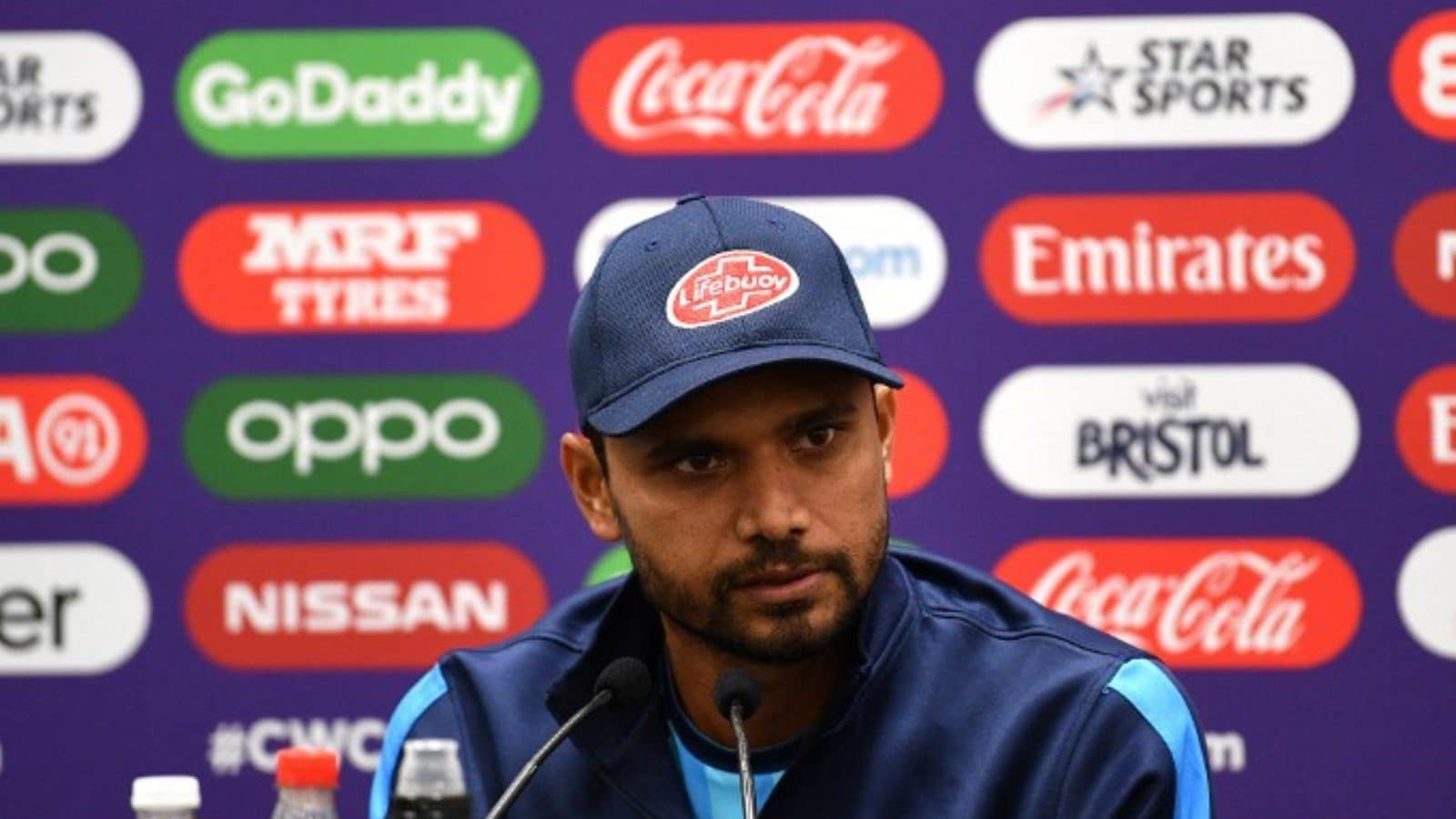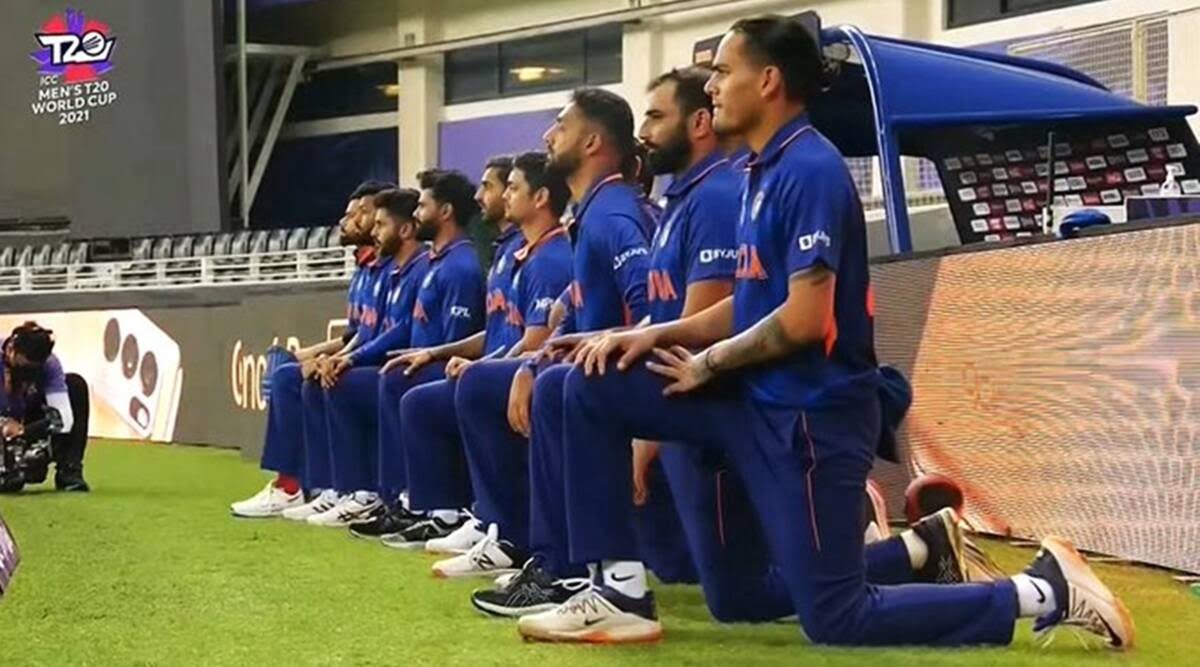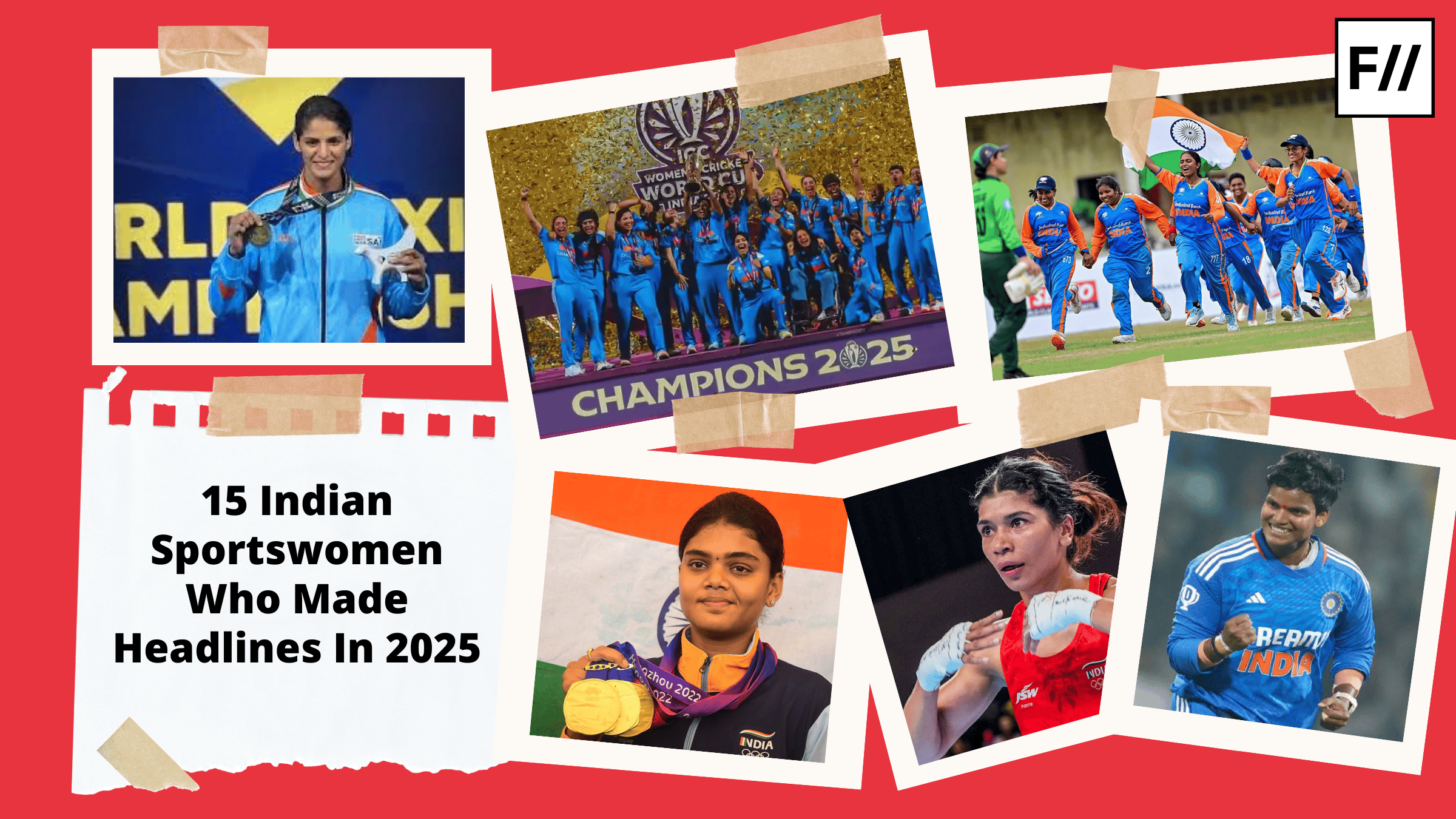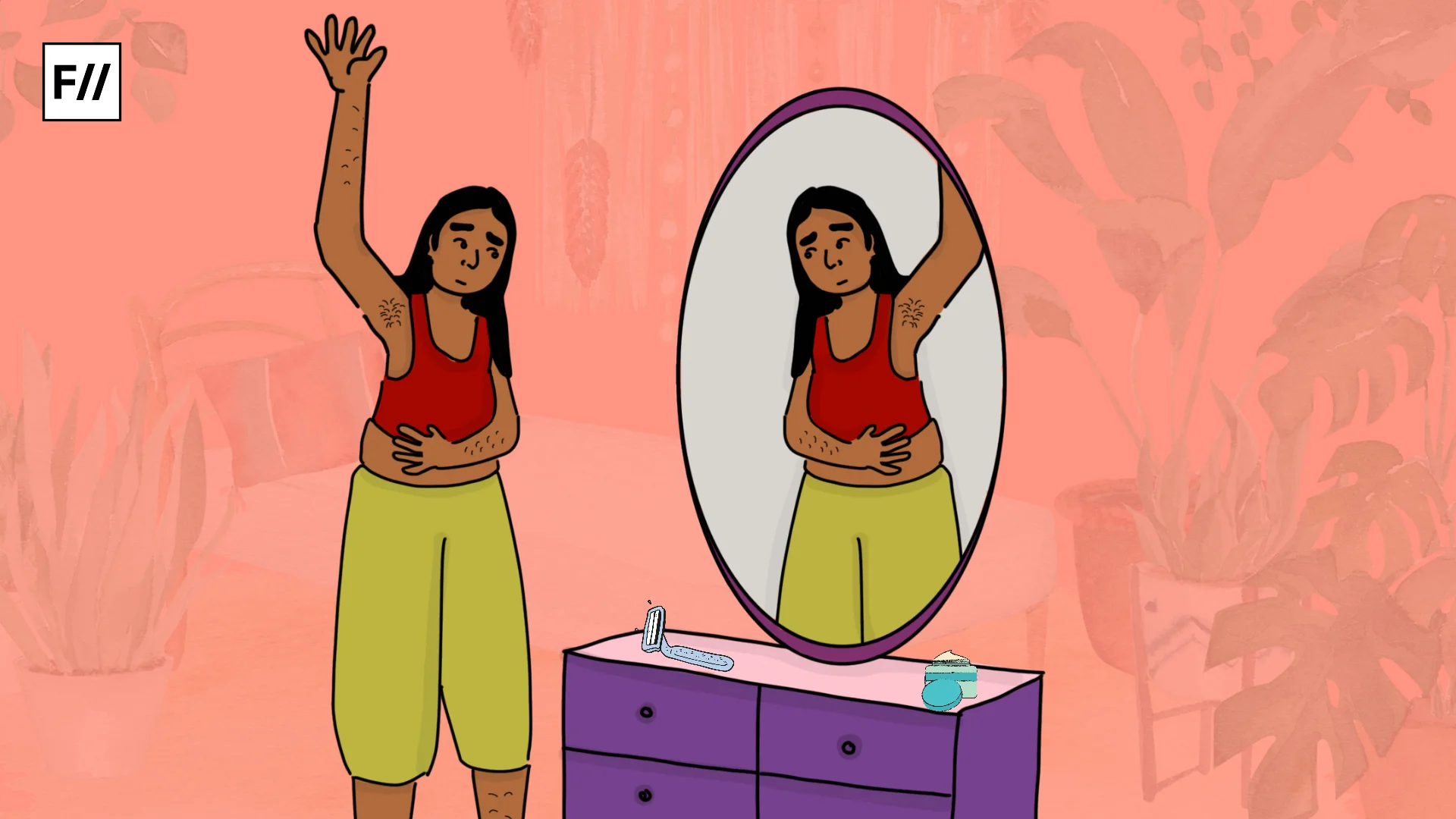Last week, former Bangladesh cricket captain Mashrafe Mortaza publicly condemned the recent attacks against the Hindu community in Bangladesh. Mortaza took to social media to express his grief over the happenings in his country saying that it wasn’t the “red and green we wanted to see” adding that it has “shattered” his heart. The former captain said that the incidents of communal violence against the Hindu community was a “loss for the entire nation.”

Meanwhile, in the recently concluded T20 World cup match between India and Pakistan on Sunday, the Indian team was seen taking the knee to express solidarity with the #BlackLivesMatter movement. This was quite ironic, considering how these same Indian players have over time subtly ignored, brushed past atrocities and violence perpetrated on the minorities in their own country and conveniently stayed silent. Irony is also not lost, considering how when former West Indies captain Darren Sammy had come out and complained of facing racism by Indian cricketers during the IPL, not one Indian cricketer came out in support of him or took accountability.
concluded T20 World cup match between India and Pakistan on Sunday, the Indian team was seen taking the knee to express solidarity with the #BlackLivesMatter movement. This was quite ironic, considering how these same Indian players have over time subtly ignored, brushed past atrocities and violence perpetrated on the minorities in their own country and conveniently stayed silent.
What’s more, Kohli has now confirmed that taking the knee at the match was communicated to them by the management.
Also read: Sportswashing: The Problematic Relationship Between Sports And Human Rights

The bunch whose silence have been louder than words
Mortaza’s statement and the Indian team taking the knee, have once again put the spotlight on the Indian cricketers and the resounding silence of the Indian cricket community as a whole on the atrocities in their own backyard. Over the past few years, the cricketing community in India has not just been silent spectators of the government’s injustices but has also gone ahead to justify these actions, as “sports should be kept separate from politics”. However, when it came to tweeting propaganda statements, there was a stream of tweets not just from current players but also former greats.
India has seen a socio-political turmoil unfold in the recent past with the Modi government keen on curbing dissent and freedom of speech by all means. The BJP government has ensured to use cricket to spread propaganda ideas and the cricketing fraternity has bowed to the command, especially with Home Minister Amit Shah’s son Jay Shah as the secretary of BCCI. During the anti-CAA and NRC protests which condemned the citizenship amendment act essentially anti-Muslim in nature, we saw barely anybody from the cricketing or the film industry take a political stand. The North East Delhi riots of 2020 too was once again met by silence from the cricket fraternity.
But with the pandemic putting everything to a stop, we saw the cricket community finally speak up, but this time putting out tweets and video messages to ask people to donate to the PM Cares fund. Most of them donated huge sums of money themselves. Over the past year, the authenticity of the PM Cares fund has been challenged multiple times, but the cricketers as always have been silent.
Also read: Poster Series: A Brief History Of Sexism In The Olympics
Speaking the propaganda language
When the farmers’ protest took over the nation late last year, the Indian government and Narendra Modi in particular received severe international criticism and condemnation from public figures like Rihanna and Greta Thunberg, over the handling and treatment of the protesting farmers. On the other hand, the entire cricket community, the likes of Virat Kohli, Sachin Tendulkar, Anil Kumble, Rohit Sharma, Yuvraj Singh, etc., all came out in response to the criticism, to provide a solid defense for the government.
It was shocking or rather hilarious to see the barrage of propaganda tweets, coming one after the other, from some of the big names in the game.
Murtaza’s comments on the communal violence in Bangladesh, much like many other Bangladesh players who have time and again voiced their opinion, is very much in line with his head of the country, Sheikh Hasina, who came out immediately after the incident took place, to put forth a strong statement that such acts won’t be tolerated. similarly, the silence of the Indian cricketers over instances of violence against the minorities in India resonates the silence of the head of our state, Narendra Modi, who is yet to give a press conference since taking office in 2014.
The BCCI-BJP nexus
However, this is not the first time. India has had a trend of being historically silent. So much so that former Indian men’s cricket team captain and current BCCI president, Sourav Ganguly issued a public statement, when his daughter Sana was vocally critical of the CAA act and expressed solidarity with the anti-CAA protesters on her social media. Ganguly was quick to serve a rather patronising explanation that his daughter was “too young a girl to know about anything in politics”.
The BCCI has long had the monopoly of power in Indian cricket, which they have used to their benefit. Players hardly question the decision or unfair treatment. And if they do, BCCI makes sure that they have a hard time. Indian politicians have long been deeply involved in cricket, basking in the money, power and glory. Modi government however has taken it to the next level. With Jay Shah as the general secretary of the BCCI, the central government’s stronghold on the cricket body is now stronger than ever.
The biggest example of this is that the newly rebuilt cricket stadium in Ahmedabad was renamed as the “Narendra Modi Stadium” and the stands in the ground were named after Mukesh Ambani’s Reliance Industries and Gautam Adani’s Adani group, the two most powerful tycoons who have close ties to the prime minister. This says a lot about the relationship between cricket and the political-economic power structure in today’s India.
The biggest example of this is that the newly rebuilt cricket stadium in Ahmedabad was renamed as the “Narendra Modi Stadium” and the stands in the ground were named after Mukesh Ambani’s Reliance Industries and Gautam Adani’s Adani group, the two most powerful tycoons who have close ties to the prime minister. This says a lot about the relationship between cricket and the political-economic power structure in today’s India.
Consequences of speaking out
One needs to mention, that there have been instances of a few from the cricketing community speaking up against the injustices. But they have been met with heavy criticism. Indian fast bowler Sandeep Sharma had to take down a tweet during the farmers’ protest where he had taken pot-shots at the government saying that if the outsiders are not allowed to speak on India’s internal matters, then “by this logic no one should care about each other because every situation is someone’s internal affair”. Former cricketer Irfan Pathan is often subjected to communal trolling by the right-wing, for putting across his views on contemporary matters and sharing messages of unity and communal harmony, which he bravely continues to do.
Sports as a tool for socio-political change in history
If we look back at the history of world cricket, to say that you can keep cricket away from politics would be wrong. Or rather it has always proven to be the opposite. One of the biggest examples of this is South Africa’s sporting isolation around the world, which eventually played a key role in ending apartheid in the country. South Africa refused to accept the inclusion of coloured cricketers in their team and they were therefore restricted from playing cricket around the world, or playing world cups and other international tournaments, which cost them massively.
Finally, in 1991, the sporting isolation officially ended, which also marked the end of apartheid in South Africa. Sports is based on the value of equal and fair play, and apartheid and discrimination were what the system could not and did not stand for. Hansie Cronje was appointed captain of South Africa in the post-apartheid team and Herschelle Gibbs became the first non-white member to play for the team.
Why is it important for the cricketing fraternity to speak up?
For people in India cricket has always been more than just a game. The players who represent the national teams are put on a pedestal and worshipped. They are seen as a touch above the rest. When people are put on a pedestal, in a way they are given a position of authority that gives them the power to influence other people’s decisions. In this case, it is the decisions of an entire nation. Cricketers in our country hold that power to influence thought processes and sway decisions, and the Narendra Modi led BJP govt has realised this potential.
There is a need, now more than ever, for the cricket fraternity to stand and speak up. They need to understand the power they hold, and the impact they can have. Our cricketers are some of the most influential and powerful people in the country. But with influence and power also comes responsibility, which they have continually shrugged. Taking a knee for #BlackLivesMatter is not wrong, but if it is under the order of the management, then what is it but quite a PR stunt? Meanwhile, bending the knee and speaking up for the Dalits, Muslims and other minorities is much more immediate in the current context.
Featured image source: Times Of India
About the author(s)
Shriya is a former student of literature and a multimedia journalist with an interest in sports and human rights. She can be found watching Shah Rukh Khan movies or listening to Ali Sethi and 90s Bollywood songs. She enjoys a good cup of black coffee multiple times a day and is often compared to 'Casper, the friendly ghost'.




